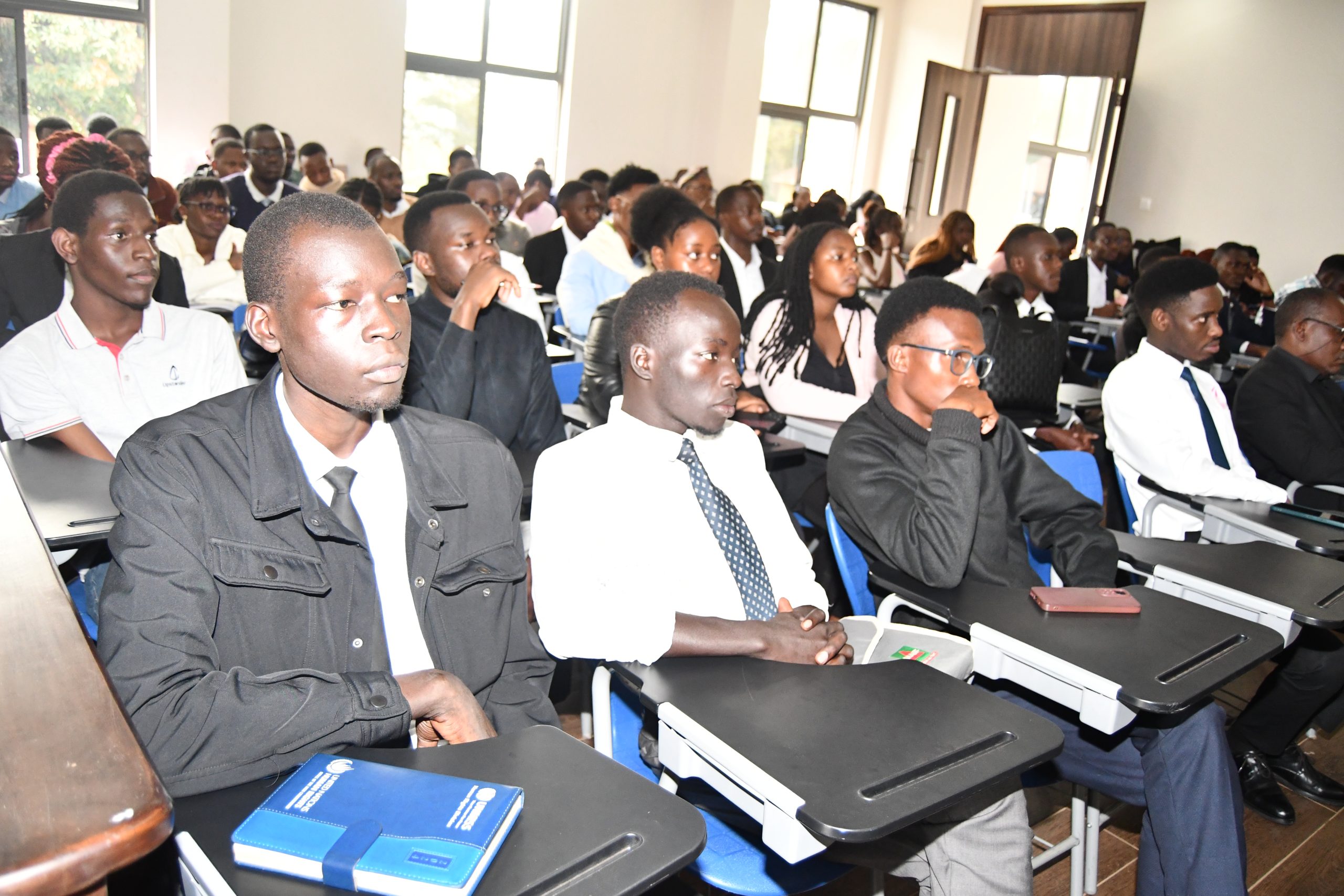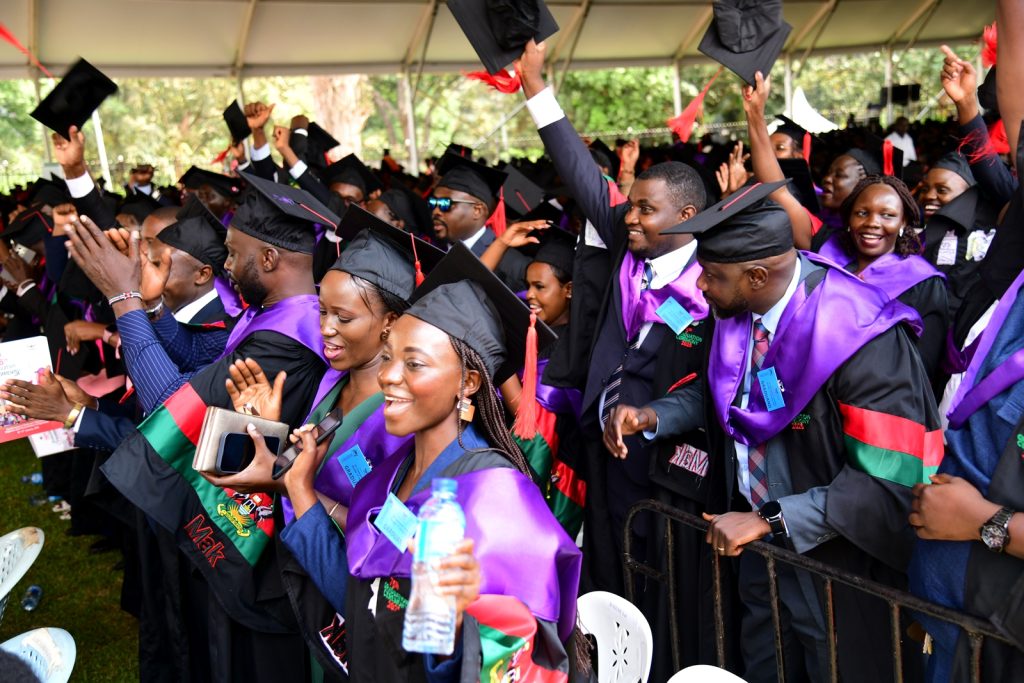Clinical Legal Education Moot Before Judges
The 4th Annual CLE Moot competition took place on Tuesday 17th April 2018 at the High Court of Uganda, Kampala, in Courtroom 1.
The Moot was presided over by a panel of Judges that included, Hon. Lady Justice Lydia Mugambe and Hon. Justice Musa Sekaana and Hon Lady Justice Joyce Kavuma.
This year’s Moot competition was aimed at exposing students to the legal issues around the protection of land and housing rights at the International, Regional and Domestic scene.
In the debrief that followed the moot, the judges commended the staff of the school of Law for the time taken to prepare the students for the moot. Students were encouraged to adopt more skills in research, legal writing and presentation. Further they were advised to gain a good command of the English language, balance their submissions and work as a team for the benefit of as many students as possible. Other areas of improvement were maintaining eye contact, avoidance of the use of redundant words, as well as balancing between eye contact, presentation and reading from the notes.
It was indicated that the program under the public interest law clinic presents a very good training ground for the law students and that if resources allow, more and more students should be taken on.
All the participants were awarded certificates of participation while the best oralists were also recognized. Mr. Musiime Mukama Taremwa emerged the best Oralist.
Moot courts by students in the Clinical Legal Education program is one of the hands on practical ways through which PILAC is changing the training of lawyers orienting them into social justice lawyers. The moot court is one such activity where the students had an opportunity to test their skills before real judges at the High court albeit debating on an imaginary scenario with the objective of putting to test the theories learnt as well as skills in becoming good orators, undertake research and presentation before court.
In PILAC, with the support of the Moots Coordinator, Ms Ahumuza Diana Ateenyi together with other facilitators, students are continually guided and in the process they acquire research skills, master human rights systems and norms. The activity empowers young law students with practical skills to engage, present and argue human rights cases before competent national, regional and international human rights bodies/courts.



